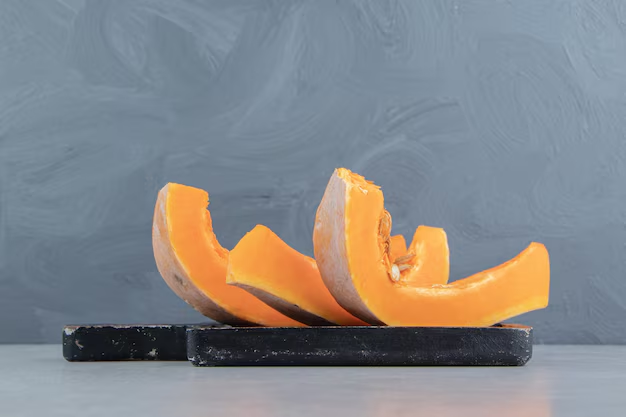How Long Can Cantaloupe Stay Fresh in Your Refrigerator?
Cantaloupes are not just a sweet and juicy summer treat; they are a powerhouse of nutrients that can be a delightful addition to a healthy diet. But if you've ever found yourself wondering how long a cantaloupe will last in your refrigerator, you're not alone. Proper storage is key to enjoying this amazing fruit to its fullest, and in this guide, we'll explore the best practices to ensure your cantaloupes remain as delicious and nutritious as possible.
Let's dive into the factors that affect the shelf life of cantaloupes, how you can maximize their freshness, and some practical storage tips. Plus, we'll touch on related aspects of food storage that might just transform how you manage your kitchen.
🕰️ The Lifespan of Cantaloupe in the Refrigerator
Cantaloupe, like most fruits, has a limited shelf life, significantly impacted by how and where it's stored.
Freshly Picked vs. Store-Bought
Cantaloupes usually have a longer shelf life when freshly picked compared to store-bought ones, as they haven't been subjected to the rigors of packing and shipping. A freshly harvested cantaloupe can last up to two weeks if properly stored.
On the other hand, a store-bought cantaloupe generally lasts about 5-7 days in the refrigerator because it might have already spent some time during transport and on shelves.
Whole vs. Cut Cantaloupes
The longevity of cantaloupes also depends on whether they are whole or pre-cut:
- Whole Cantaloupes: When stored in the refrigerator, whole cantaloupes can last around 5 to 7 days.
- Cut Cantaloupes: Once cut, the fruit’s shelf life decreases due to exposure to air and potential contaminants. Cut cantaloupe can be safely stored in the fridge for about 3 to 4 days.
🍈 Storage Tips for Prolonging Cantaloupe Freshness
To enjoy cantaloupe at its best, consider these storage methods:
Before Cutting
- Keep it whole until needed: Cantaloupes last longer uncut, so wait until you're ready to consume them before slicing.
- Store in a cool, dry place: If the cantaloupe isn't quite ripe, leave it at room temperature to ripen further. Once ripe, transfer it to the refrigerator.
After Cutting
- Wrap tightly: Use plastic wrap or a resealable bag to cover the cut surfaces of the cantaloupe to prevent them from drying out or absorbing other refrigerator odors.
- Use airtight containers: Store cut pieces in airtight containers to prolong their freshness and avoid contamination.
⏲️ Recognizing Spoilage
Knowing how to identify a spoiled cantaloupe is crucial to avoid consuming spoiled produce:
- Sight: Discoloration, spots, or mold indicates spoilage.
- Smell: An off-putting or sour smell is a warning sign.
- Texture: If the flesh feels mushy or slimy, it’s best to discard it.
🥤 The Connection to Freshness: Ripeness Matters
Understanding the ripeness of a cantaloupe can help you maximize its freshness. Here's how to choose the ripest cantaloupe at the store:
- Surface: Look for a cantaloupe with a uniform golden-tan netting over the skin.
- Feel: A ripe cantaloupe will feel slightly soft when you gently press it.
- Aroma: A sweet and musky aroma at the stem end is usually a good sign of ripeness.
🌡️ Ideal Storage Conditions
Storing cantaloupes in the right environment can significantly affect their shelf life:
- Temperature: Refrigeration at 36-41°F (2-5°C) is ideal for preserving maximum freshness.
- Humidity: Ensure the humidity is balanced; too much moisture can promote mold growth.
🛒 Preventing Food Waste: Smart Storage Strategies
Reducing food waste is easier when you store cantaloupes efficiently:
- First In, First Out: Use older cantaloupes first to minimize waste.
- Portion Carefully: Cut cantaloupes into portion-sized pieces before refrigerating for convenient use in recipes.
🥗 Cantaloupe's Nutritional Profile
Storing cantaloupes properly isn't just about preventing waste; it's about ensuring you get the nutritional benefits too. Cantaloupes are packed with:
- Vitamin C: Important for immune health.
- Vitamin A: Essential for vision and skin health.
- Potassium: Vital for heart and muscle function.
🔍 Beyond the Cantaloupe: Broader Food Storage Tips
Integrating cantaloupe storage practices into a broader food storage strategy can improve overall kitchen efficiency:
Cross-Contamination Prevention
Store cantaloupes and all produce separately from raw meats and other potential contaminants to avoid any foodborne illnesses.
Fridge Organization
Organize your refrigerator to keep fruits and vegetables fresh longer. Use crisper drawers, and adjust settings if possible to suit their contents.
Practical Labels
Label containers with dates when storing cut cantaloupe or other fruits to keep track of food safety timelines easily.
🍽️ Quick and Fresh Cantaloupe Recipe Ideas
Maximize your cantaloupe enjoyment with these quick ideas to keep your meals exciting:
- Smoothies: Blend cantaloupe with yogurt and a squeeze of lemon for a refreshing morning boost.
- Salads: Mix cantaloupe cubes with feta cheese, cucumber, and mint for a light, invigorating salad.
- Frozen Treats: Puree cantaloupe and freeze in molds for a delightful summer popsicle.
📝 Key Takeaways for Keeping Cantaloupe Fresh
Here is a handy summary to keep your cantaloupe at its freshest and most delicious:
- Store whole, uncut cantaloupes in the fridge for up to 7 days.
- Cut cantaloupes last 3-4 days when stored properly in airtight containers.
- Check for ripeness before refrigeration: Look for softness, aroma, and rich-netted skin.
- Prevent spoilage by recognizing sight, smell, and texture changes.
- Custom storage: Keep moisture balanced and segregate from raw meats.
By implementing these food storage tips, you'll not only extend the life of your cantaloupes but also enhance the quality of your culinary creations while reducing waste. Treat your cantaloupes—and your kitchen—with care, and you'll enjoy a fruitful, fresh experience every time.

